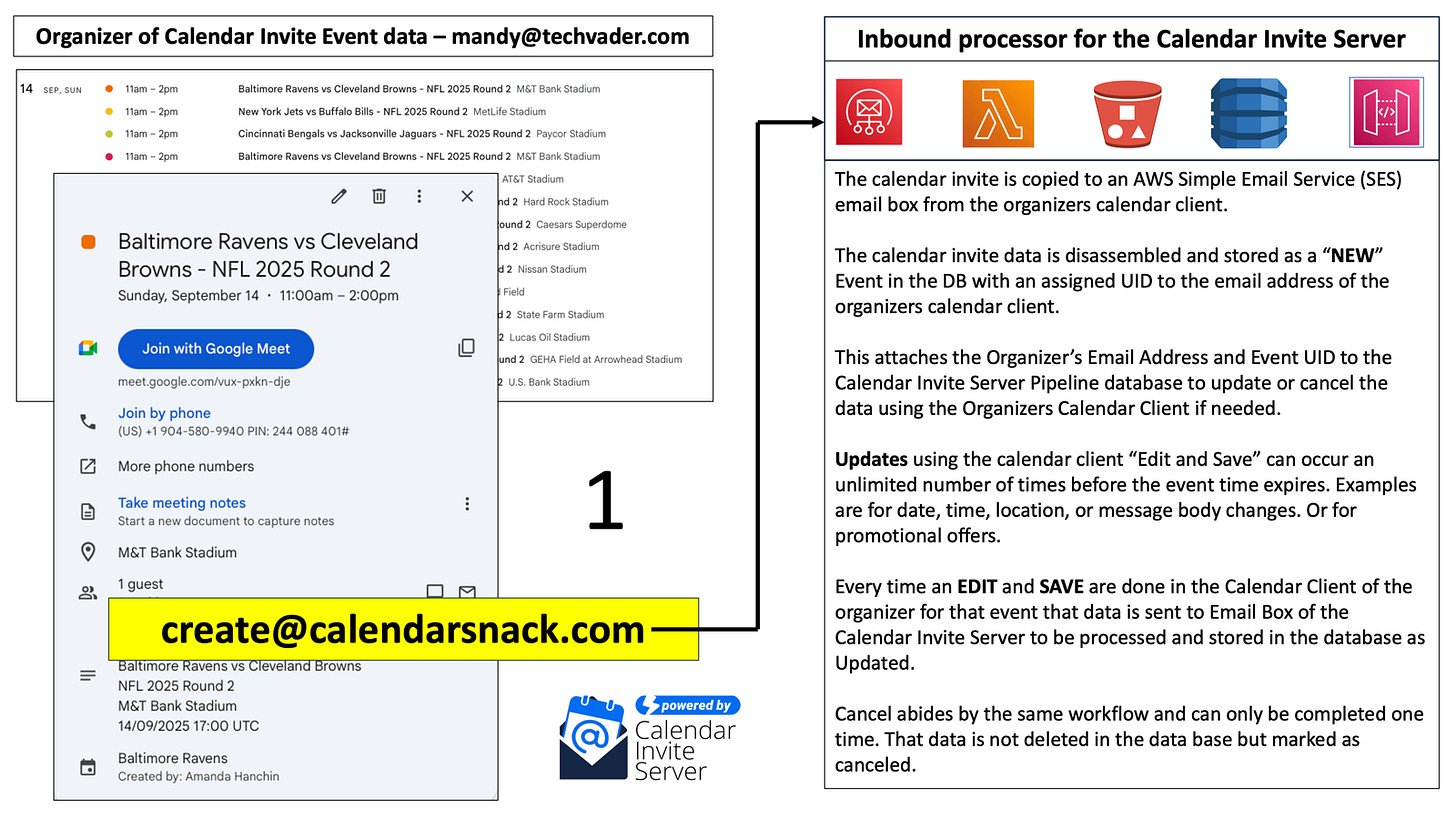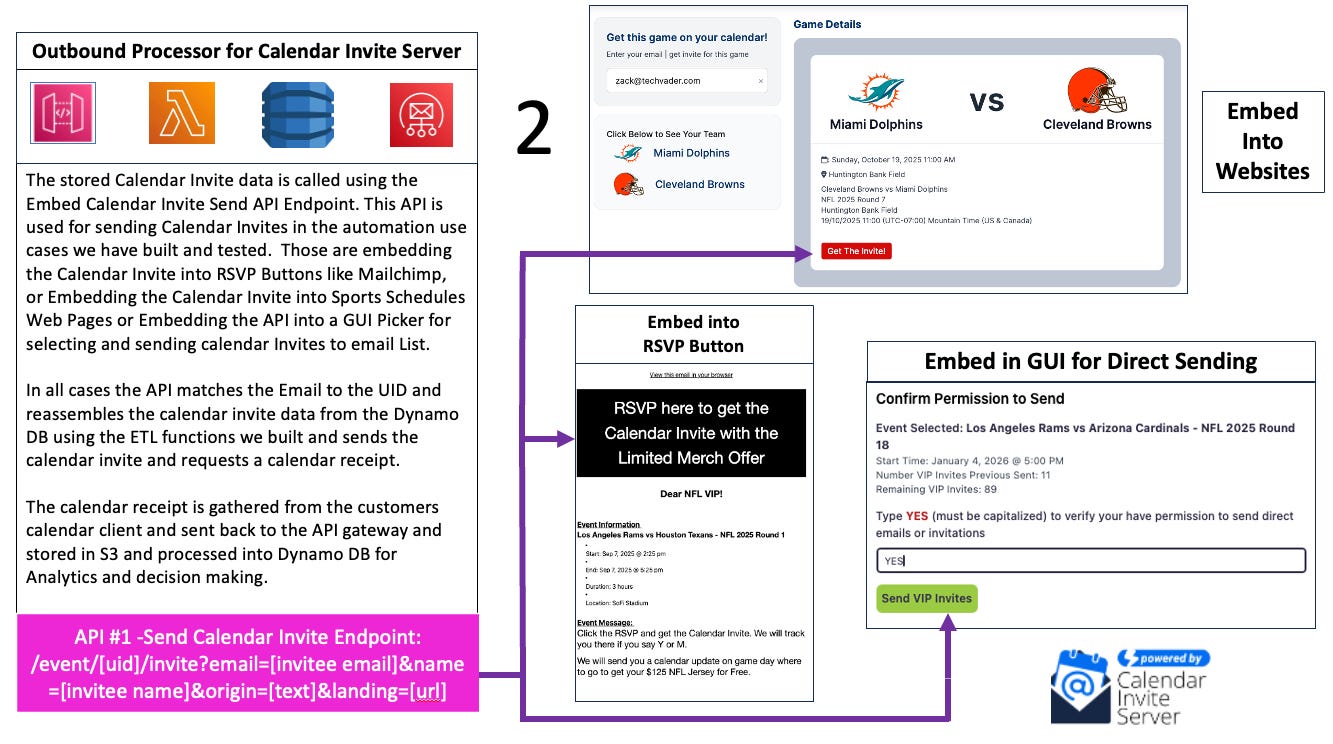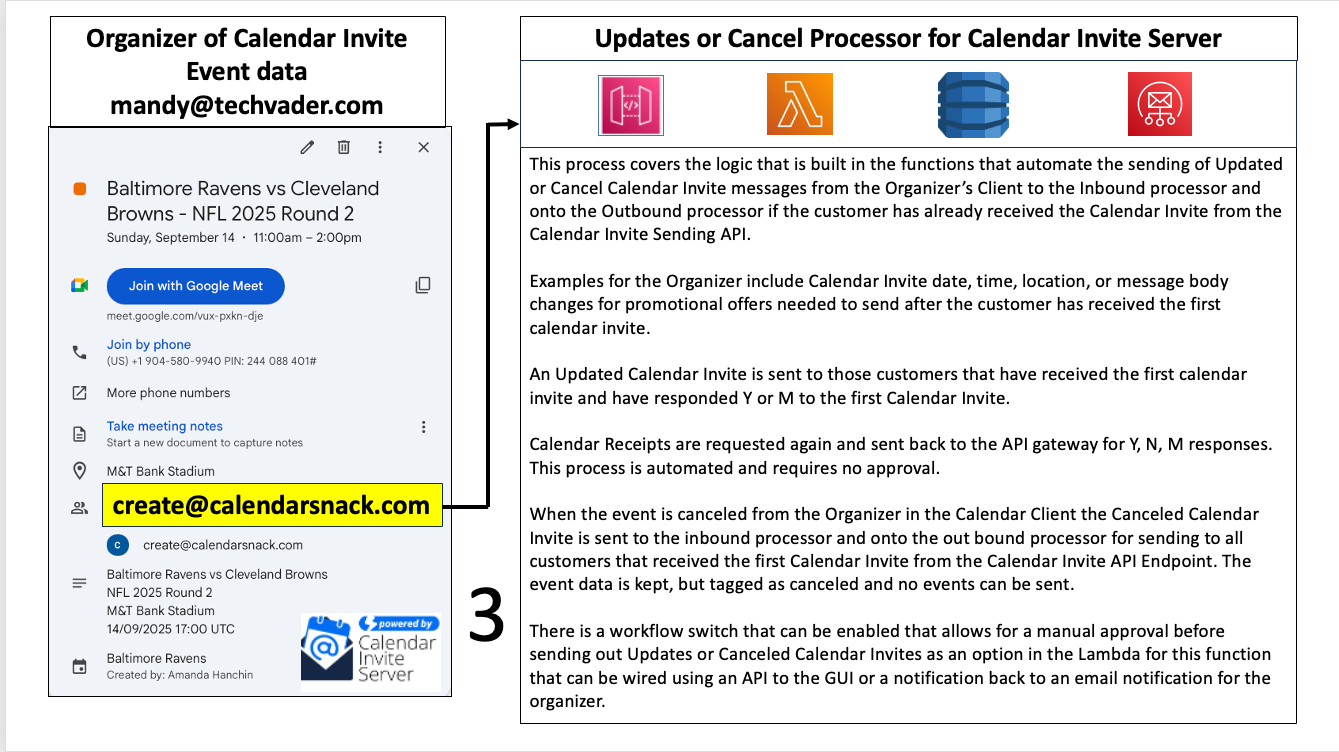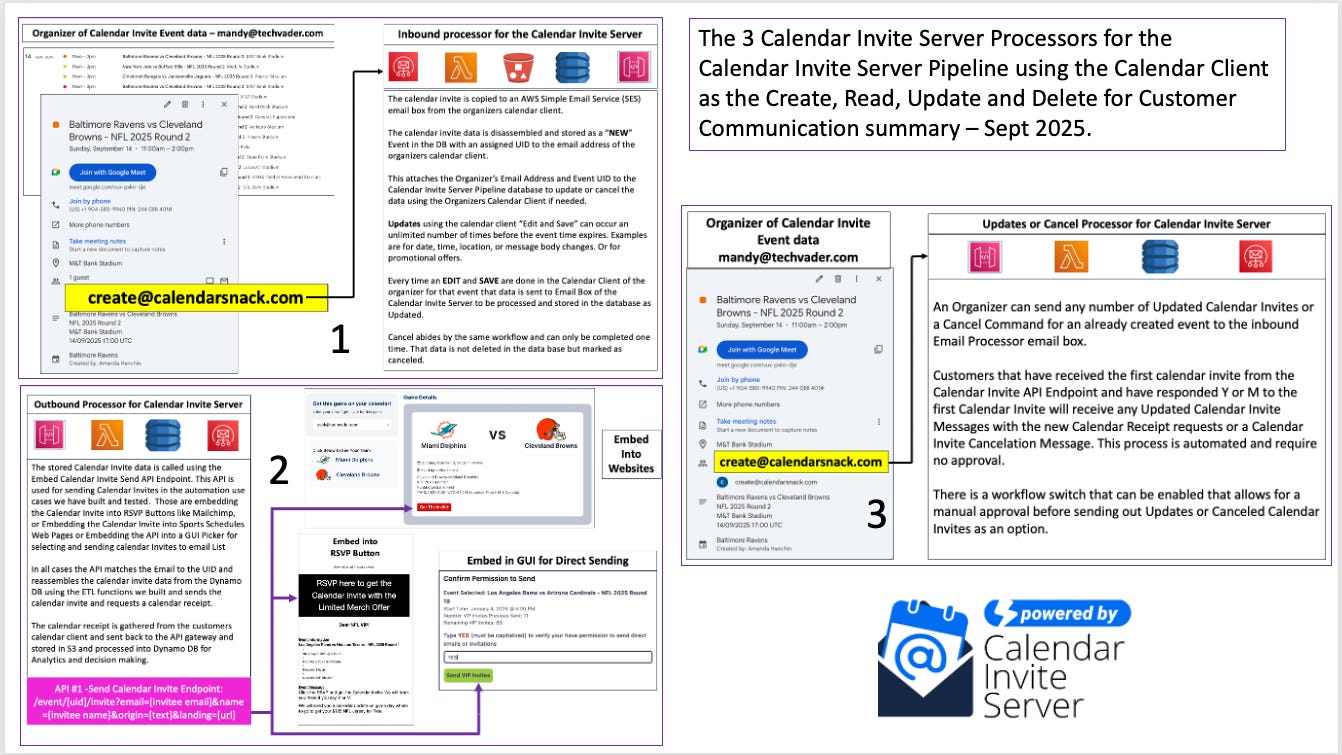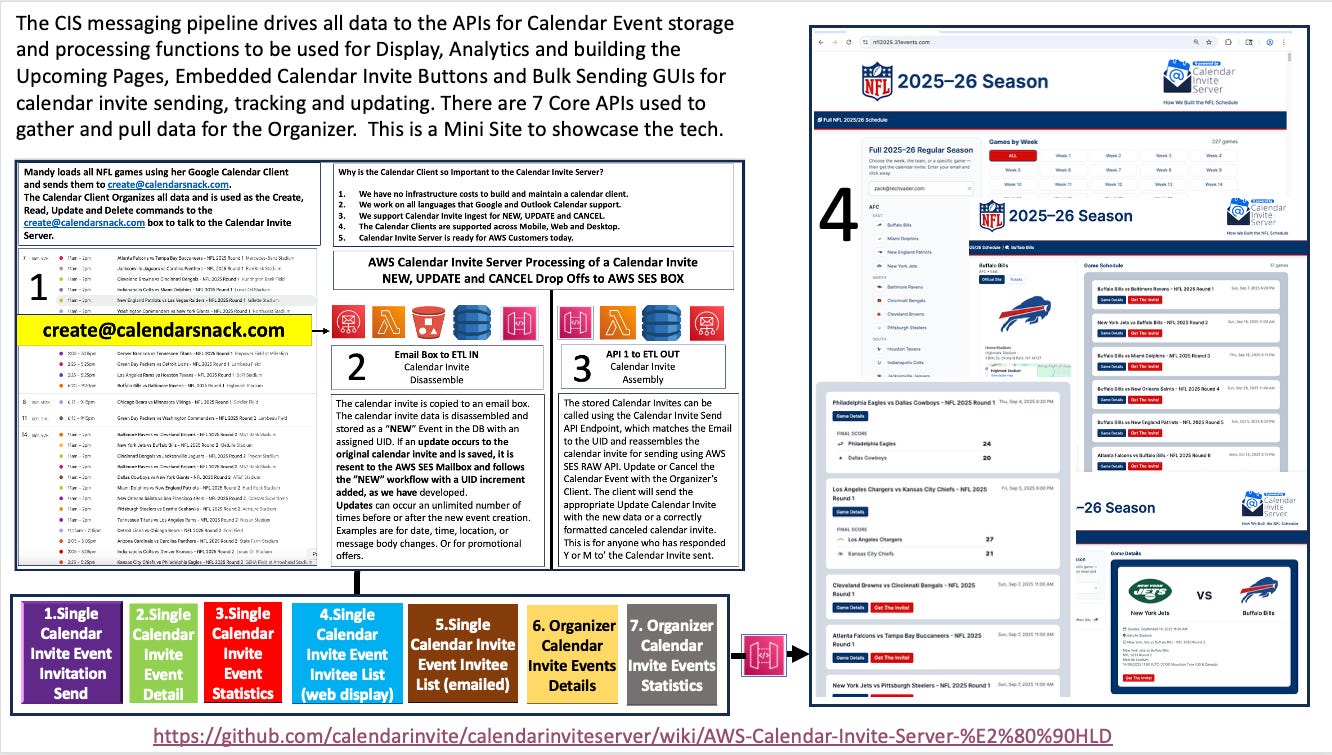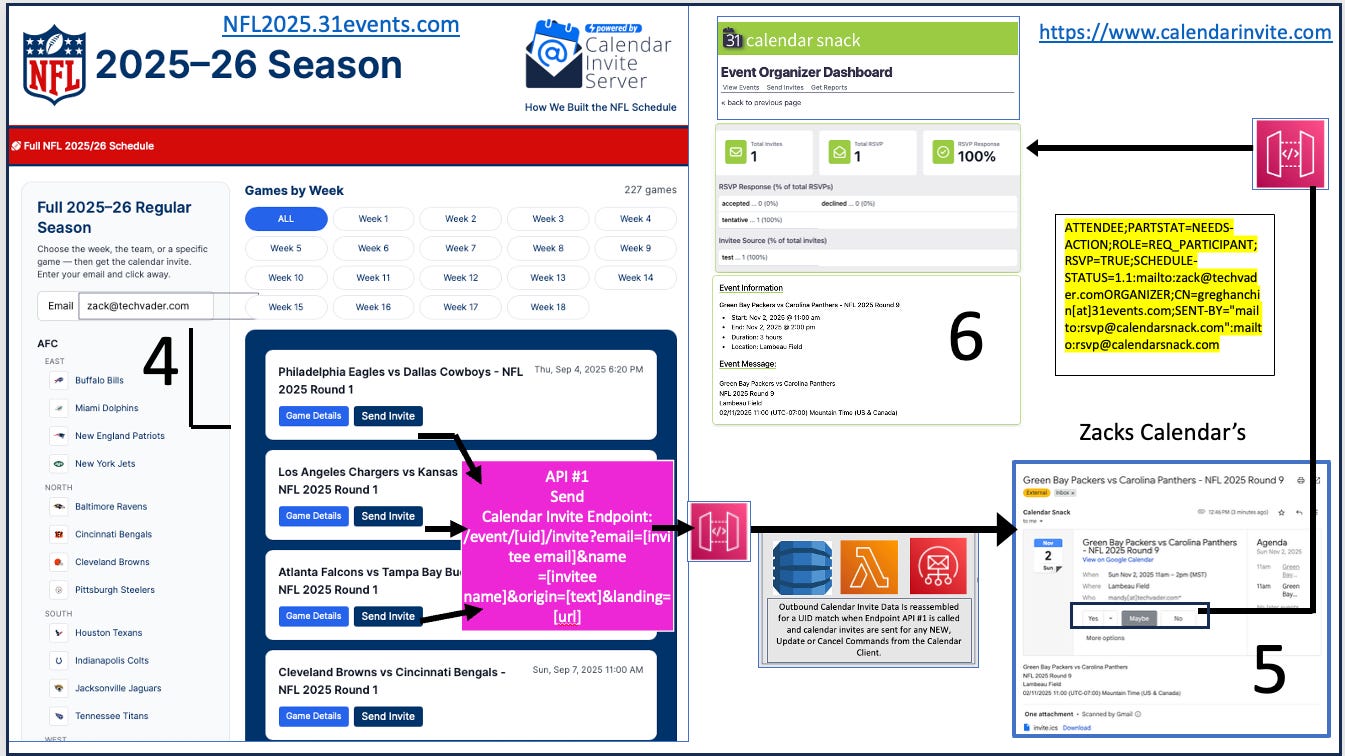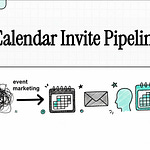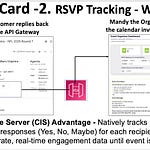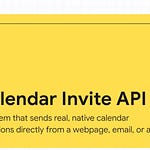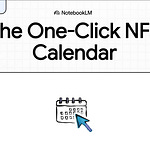Briefing Document: Calendar Invite Server Compute Processors
This document provides a detailed review of the "Deep Dive - The 3 Calendar Invite Server Processors for the Calendar Invite Server" source, outlining its central themes, key ideas, and essential facts. The source describes a system designed to manage and automate calendar invitations, particularly for large-scale event promotion and updates.
Main Themes:
The primary themes revolve around the automation, scalability, and flexibility of calendar invitation management. The system aims to simplify the creation, distribution, updating, and cancellation of calendar events, particularly for scenarios involving large numbers of attendees or dynamic event information. The integration of AI for workflow image generation and text/FAQs highlights a focus on efficiency and documentation.
Most Important Ideas/Facts:
The core of the system is built around three distinct, yet interconnected, processors: the Inbound Processor, the Outbound Processor, and the Update/Cancel Processor. These processors leverage Google Calendar and AWS services (SES, DynamoDB, S3, API Gateway, Lambda) to achieve their functionality.
1. Inbound Processor (Workflow One): create@calendarsnack.com
Function: This is the initial point of contact for calendar invite data. Organizers send or forward event information from their Google Calendar to create@calendarsnack.com.
Mechanism: create@calendarsnack.com is an email box routed to AWS Simple Email Service (SES). It acts as a "physical mechanical inbound processor" for the calendar server.
Data Handling: The inbound processor "disassembles and stores" the calendar invite data as a new event in a database.
UID Assignment: A Unique Identifier (UID) is assigned to the event and matched to the organizer's email address, linking the event to the organizer's calendar client.
Organizer as Processor: "Mandy becomes a processor if you will by using her calendar client for create, read, update, and delete for events sent to this email.” This means organizers use their own calendar client (e.g., Google Calendar) to initiate changes.
Update Routine: Any edits (date, time, location, message body, promotional offers) made by the organizer in their calendar client are resent to crate@calnack.com, processed, and stored as updated data.
Cancellation: Cancellations follow the same workflow, marking the event as "canceled" in the database but not deleting the data.
Example: Mandy at techvader.com loads NFL games onto her Google Calendar and sends them to create@calendarsnack.com.
2. Outbound Processor:
Function: This processor handles the sending of calendar invites, often for automated use cases.
Mechanism: It utilizes an "embedded calendar invite send API endpoint" to retrieve and reassemble calendar invite data from DynamoDB using ETL (Extract, Transform, Load) functions.
Use Cases:
RSVP Buttons - Embedding calendar invites into buttons for platforms like Mailchimp.
Web Pages: Embedding Calendar Invites into Sports Schedule Web Pages.
GUI Picker for Bulk Sending: A visual picker (e.g., for NFL games) allowing organizers to select an event and upload an email list for batch invitations.
API Structure: The API combines the customer's email address and the event's UID to send out the invite.
Calendar Receipts: The system requests and gathers calendar receipts (i.e., yes, no, or maybe responses) from customer calendar clients, storing them in S3 and processing them into DynamoDB for analytics and decision-making purposes.
Example: "Zack at Techvader in this case here gets a calendar invite" after entering his email into a webpage promoting a game, which then triggers the API to send the invite.
3. Update or Cancel Processor:
Function: This processor automates the sending of updated or canceled calendar invite messages after a customer has already received an initial invite from the sending API.
Workflow: Changes made by the organizer in their calendar client are sent to the Inbound Processor, which then automatically forwards them to the Outbound Processor for distribution.
Decision Logic for Updates: If a customer responds "yes" or "maybe" to the initial invitation, an updated invitation is sent.
If a customer "has not responded or has said no, obviously, we're not going to update the calendar invitation already sent to them."
New calendar receipts are requested and collected for updated invites.
Decision Logic for Cancellations: If a customer has already received the first invitation, a cancellation invite is automatically sent.
"The event data is kept but tagged as canceled, and no events can be sent obviously after that."
Automation: This process is "automated and actually requires no approval" by default.
Optional Manual Approval: A "workflow switch can be enabled that allows for a manual approval before sending out updates or canceled invites." This option can be configured via API, GUI, or email notification to send back to the organizer.
Rationale for Automation: For large communities of attendees (e.g., 300-400 customers), automated updates are crucial for organizers.
Example: Mandy edits the details of an NFL game in her calendar, which triggers the system to send an updated invitation to those who responded positively to the original. If she cancels the game, a cancellation invite is sent to the relevant attendees.
Overall System Architecture and Benefits:
Technology Stack: Google Calendar (for organizers), AWS Simple Email Service (SES), DynamoDB (database), S3 (storage for receipts), API Gateway, Lambda (for functions).
Scalability: Designed to handle "large community of countervites going out" and "batch sending in guies."
Developer Focus: The system is built using "the calendar invite server technology in which we've built" and "a fully developed application using the calendar invite server technology in which we've built."
AI Integration: The briefing itself is intended to be processed by "Notebook LLM by Google... on an AI, particularly to generate workflow images as well as text and FAQs," indicating a modern approach to documentation and explanation.
Slides used to make the Calendar Invite Pipeline Pitch
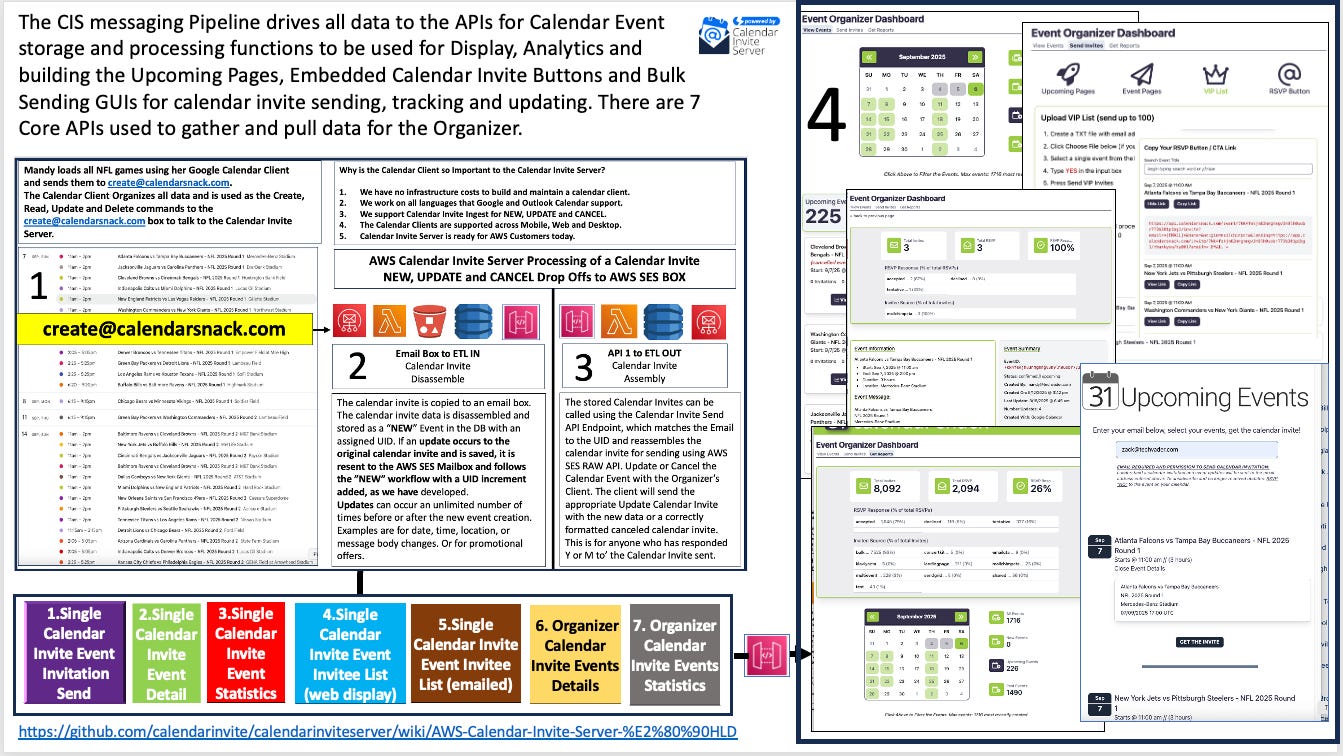
The APIS and Processors are communicating with the Mandy the Organizer Calendarsnack Demo App to obtain embeddable codes for the Calendar Invite Sending API, which enables the sending, tracking, updating, and cancellation of calendar invites for organizers and customers.


